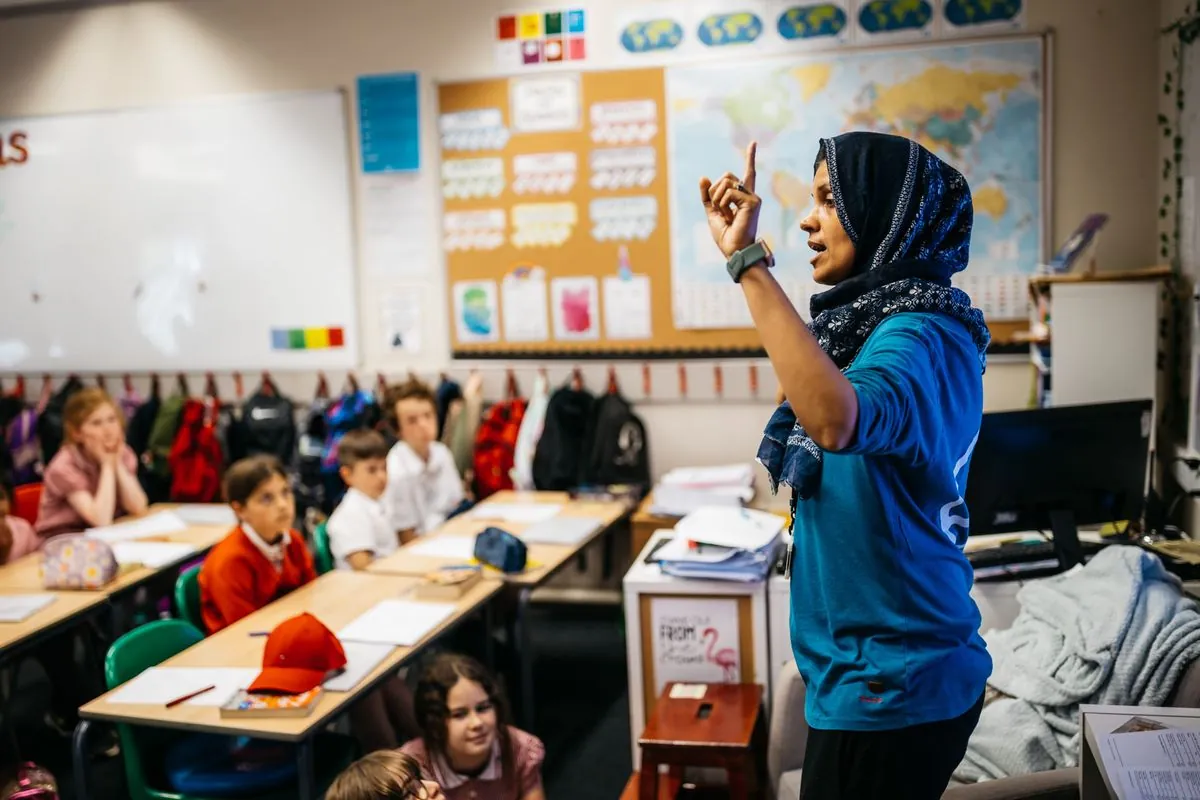The Department for Education (DfE) has recently revised its school guidance, introducing the term "mobile children" to replace references to pupils from the traveller community. This modification, implemented earlier this week, aims to provide clarity on the policy's application to various groups.
The updated guidance now defines "mobile children" as pupils "of no fixed abode" who are absent from school when their parents are "travelling in the course of their trade or business". This new terminology encompasses not only traveller families but also "other children whose families may travel for occupational purposes".
Under current legislation, children from traveller families are often recognized as having valid reasons for missing classes. The school attendance system uses a "T code" to mark authorized absences for these pupils. Previously, this code applied to various groups, including Roma, English and Welsh Gypsies, Irish and Scottish Travellers, showmen, circus people, bargees, and new travellers.
The revised guidance has removed specific references to these demographics, instead stating that the "T code" applies when a "parent is travelling for occupational purposes". Baroness Jacqui Smith, an education minister, explained that the term "mobile children" was introduced to emphasize "the child's mobility rather than ethnicity".
Official DfE data reveals that in the 2023-24 autumn term, approximately 79,000 absences were granted using the "T code". Of these, 55% were for Gypsy Roma pupils and those classified as Travellers of Irish heritage. The remaining 43%, amounting to over 31,000 absences, were classified as white British, white Irish, or of other white heritage.
"The new term 'mobile children' was swapped in to clarify that the exemption applies to the child's mobility rather than ethnicity."
It's worth noting that the Romani people, often referred to as Gypsies, have a rich history dating back to their migration from northern India to Europe around 1,500 years ago. In the UK, Romani Gypsies and Irish Travellers gained ethnic minority status in 1989 and 2000, respectively. The Roma are currently Europe's largest ethnic minority, with an estimated population of 10-12 million.
The education of Gypsy and Traveller children in England has been a focus since the Education Act 1944, which first introduced compulsory education for these groups. Over the years, various legislations, such as the Caravan Sites Act 1968 and the Equality Act 2010, have aimed to address the needs and rights of these communities.
As the DfE continues to refine its policies, it's crucial to consider the diverse needs of all students while ensuring equal access to education. The recent terminology change reflects an ongoing effort to balance cultural sensitivity with educational requirements in an increasingly mobile society.
